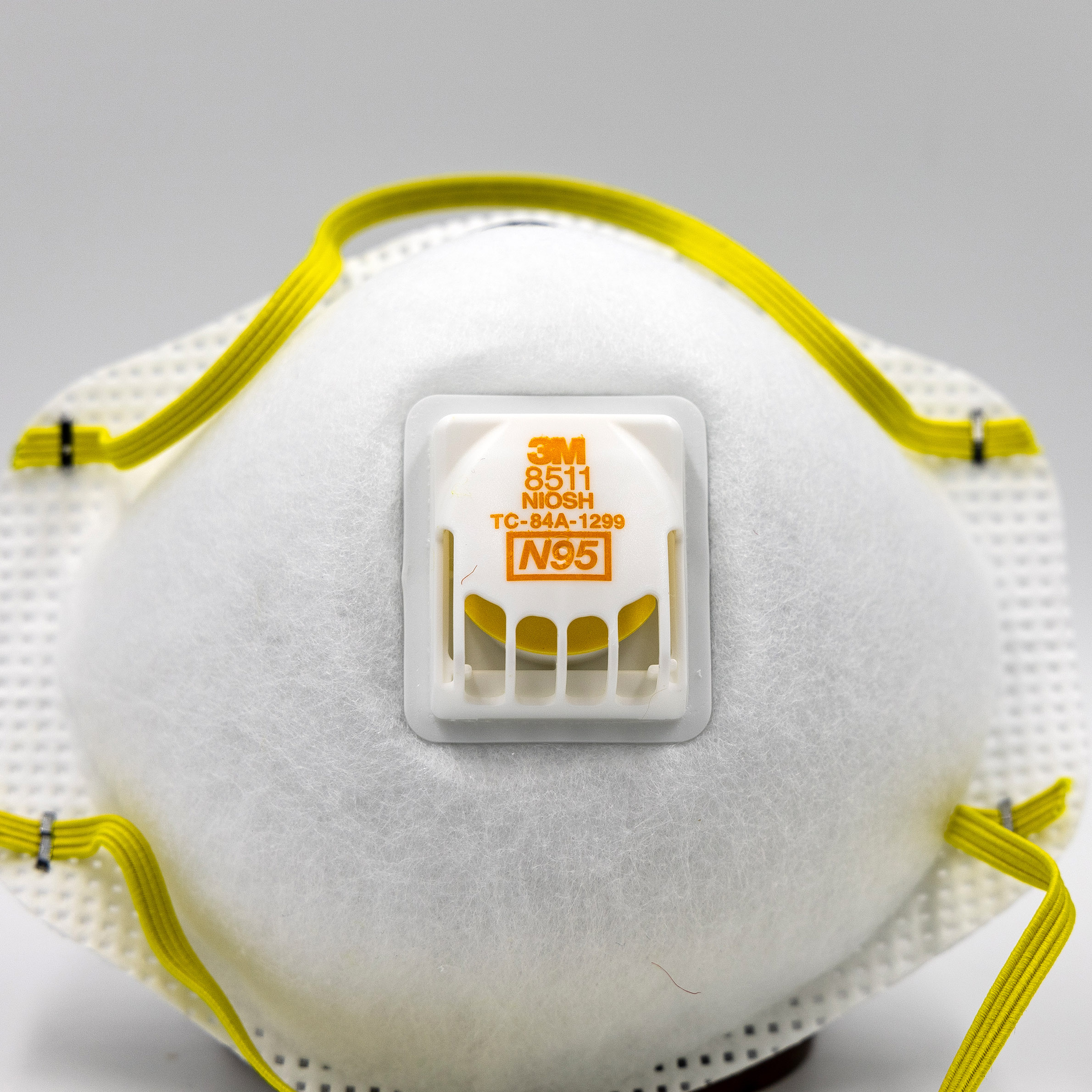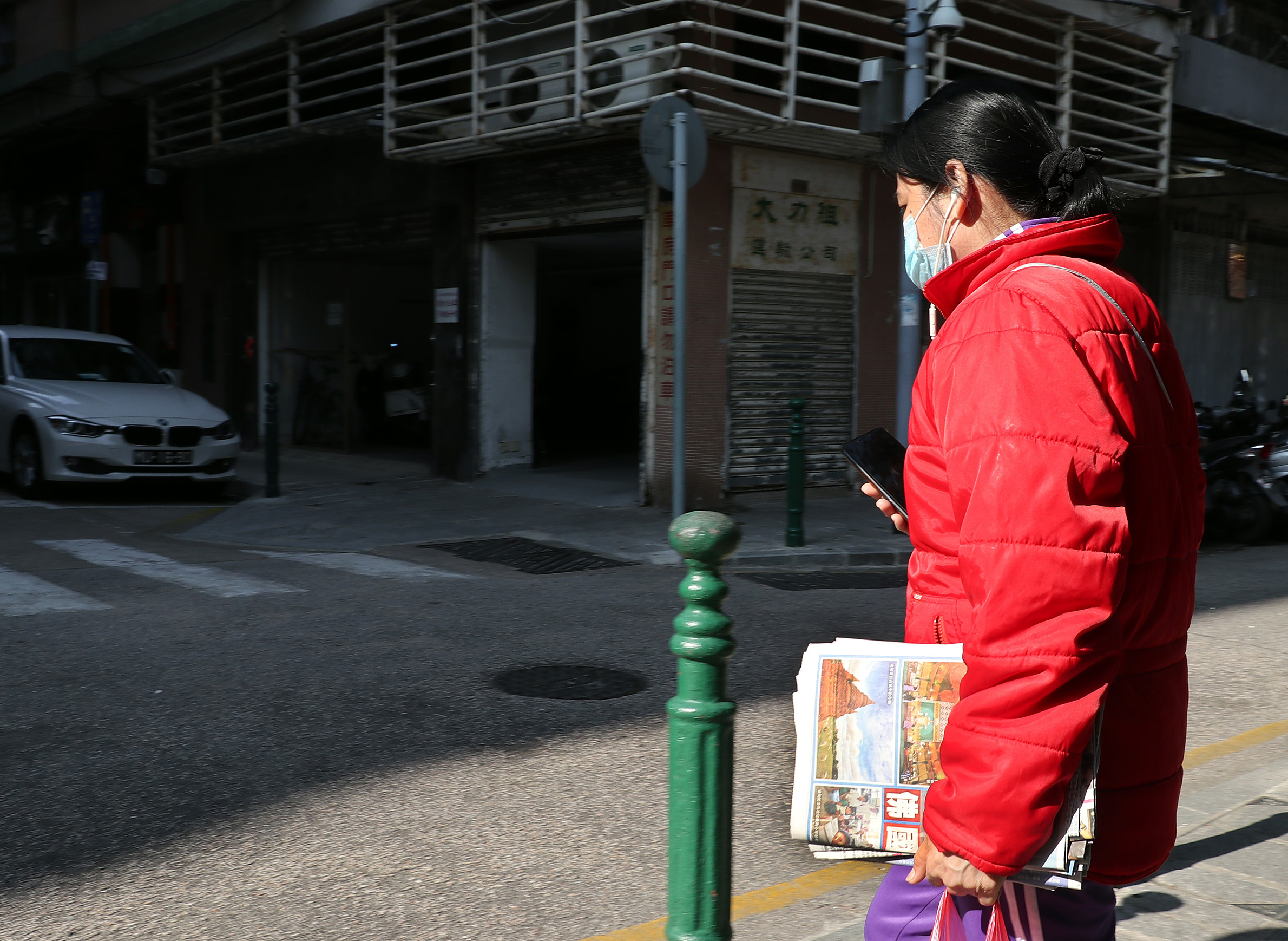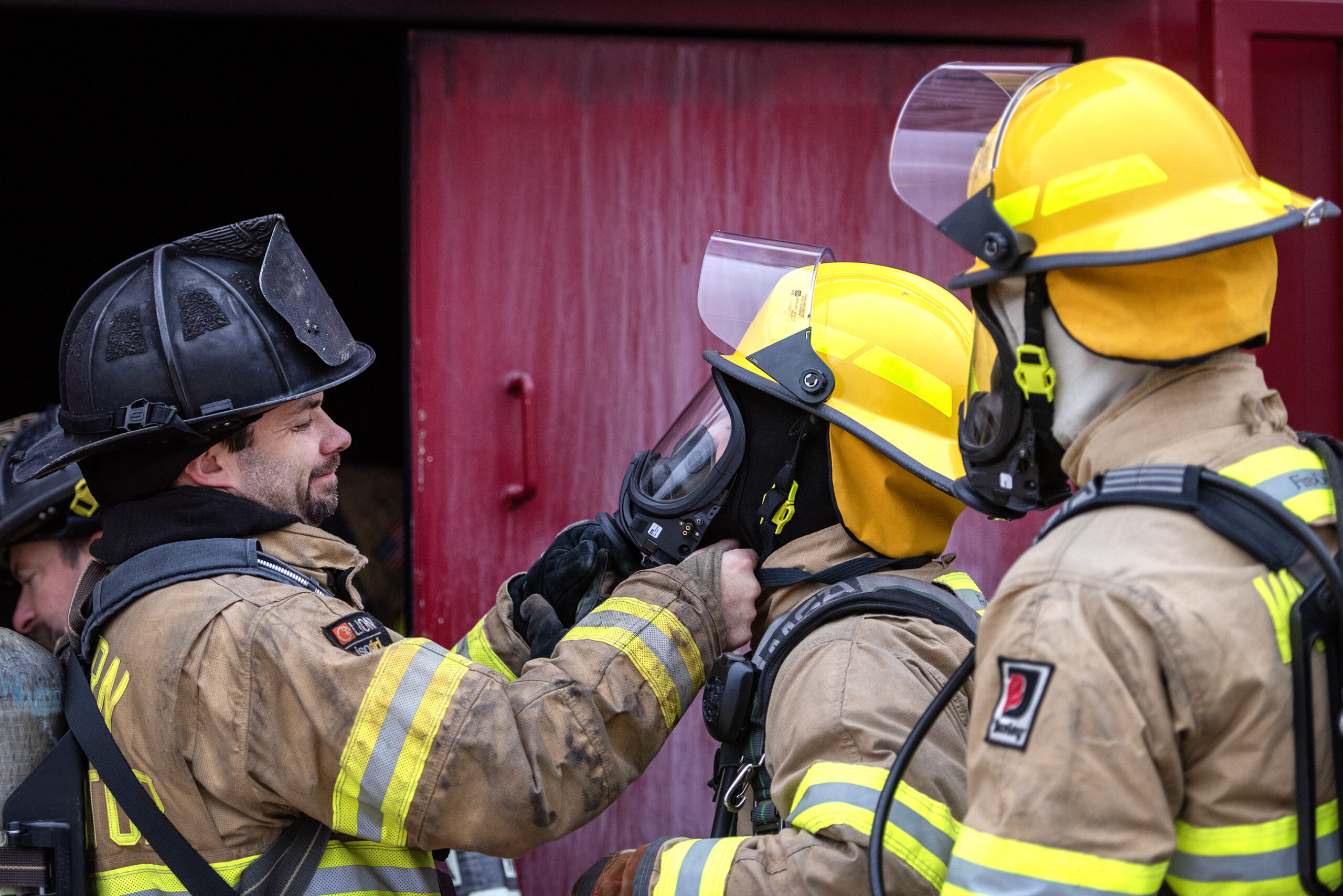The novel coronavirus sweeping through China and rippling across the globe is invisible to the naked eye, but one of its effects is increasingly conspicuous on sidewalks, public transit and doctors’ offices around the world: the widespread use of face masks.
Whether a disposable type like those that healthcare workers wear in operating rooms or a reusable variety, masks that cover a wearer’s nose and mouth are a go-to piece of apparel for many people hoping to avoid respiratory disease, whether a common cold, influenza or a novel virus like 2019-nCov, the coronavirus that emerged from central China.
News with a little more humanity
WPR’s “Wisconsin Today” newsletter keeps you connected to the state you love without feeling overwhelmed. No paywall. No agenda. No corporate filter.
After 2019-nCoV was confirmed in a patient in Dane County on Feb. 5, 2020, many Wisconsinites may be wondering: Should my family and I be wearing face masks?
For the vast majority of people in most situations, the answer from public health and medical professionals in the state is clear: There is generally no need to wear face masks in response to the novel coronavirus’s presence in Wisconsin. However, there are some important exceptions to this advice. Let’s break it down.
Face masks can be a useful tool for limiting the spread of some respiratory diseases in specific settings, but their utility is limited, explained Dr. Nasia Safdar, an infectious diseases physician and medical director for infection control at UW Health. This health provider includes the University of Wisconsin Hospitals and Clinics in Madison, where the first Wisconsin case of 2019-nCoV was identified.
Safdar said there are three things to consider when weighing whether to wear a face mask: the setting, who is wearing the mask and what kind of mask is being worn.
In terms of settings, Safdar mentioned only one in which members of the public should consider wearing a face mask: a clinic or hospital. And even then, she said only patients with respiratory symptoms like a cough may be asked to wear a mask — typically a disposable surgical-type mask.
Disposable masks can help reduce the risk that a symptomatic person will spread a respiratory infection via droplets that disperse when they cough or sneeze. While these masks are not totally effective in containing potentially infectious droplets, they provide better protection than no face protection, Safdar said. However, she added that wearing a mask should not be considered a substitute for hygiene that reduces the spread of respiratory pathogens, like proper and frequent hand washing.
Meanwhile, healthcare workers who are examining someone with undiagnosed respiratory symptoms and a travel history or relationship that puts them at higher risk for 2019-nCoV will likely choose to wear a more protective N95 mask. These masks fit much more tightly around a wearer’s face and can keep up to 95% of microscopic particles out. They’re also very uncomfortable to wear and not recommended for most people.
“An N95 mask is really a respirator,” Safdar said. “It’s much more effective than a regular mask, but it gives a tight seal around the face and it’s difficult to tolerate for long periods.”
On the other end of the spectrum, one type of widely available mask that Safdar said no one should wear under any circumstance is a reusable fabric mask. Such masks, which are often marketed toward adolescents and children and may feature branded designs, are more fashionable pieces of apparel than medically sound tools.
“I think they are very problematic,” Safdar said. That’s because reusable masks are easily contaminated and very difficult to properly clean. As such, wearing a reusable mask may actually raise the risk of developing a respiratory disease.
So if masks are only recommended for use in healthcare settings, and even then only for certain symptomatic individuals, what should Wisconsin residents make of a situation should they encounter others wearing face masks in public?
Safdar said scientific evidence does not show that healthy individuals should wear masks as a prophylactic in public settings.
“The value of wearing a mask is really uncertain there,” she said. At the same time, there is evidence that masks can get contaminated, often from wearers’ hands as they put them on and adjust them.
For these reasons, Safdar said UW Health’s recommendations for the use of face masks in light of the novel coronavirus mirror those from the Centers for Disease Control and Prevention and the World Health Organization. She added that the only asymptomatic individuals who might consider wearing a face mask are those quarantined at home with a household member who is confirmed to have the disease. Still, the WHO advises that people should not be alarmed if they see others wearing masks in public settings because cultural practices surrounding the use of masks differ around the world.
The University of Wisconsin-Madison’s University Health Services has similarly advised the campus community that some healthy individuals may choose to wear face masks in public.
“University Health Services bases its guidance to the campus community on the guidance coming from the CDC and World Health Organization, who do not advise people without symptoms to wear masks,” wrote Kelsey Anderson, a health communications specialist at the university, in an email to WisContext.
Anderson added that “We also understand that cultural practices differ and that on our diverse campus, some members of the community who are not sick feel more comfortable wearing a mask.”
Based on reports from retailers and manufacturers of face masks, that many healthy individuals in Wisconsin and around the world are indeed choosing to wear, or at least purchase, the masks.
Some stores, including in Wisconsin, have at times sold out of masks amid the rising demand.
“I can confirm that we have been seeing greater demand for certain products, such as face masks and hand sanitizers, in many of our stores,” said Alex Brown, a spokesperson for the drugstore chain Walgreens. Brown said she could not share data about demand within specific markets, but multiple Walgreens stores in Madison were sold out of surgical-style face masks at various points in early February 2020.
At a global level, suppliers of face masks have reported a surge in demand for all types, and the WHO has warned of the potential for a shortage in at least some markets. Of particular concern within the industry is that global demand for masks is spiking while most of China’s factories remain offline due to the novel coronavirus outbreak. Some manufacturers in China that typically produce other products have turned their production over to face masks and other medical supplies, while manufacturers in Europe and North America race to meet demand.
“We are beginning to see some impact on manufacturing operations in [China],” wrote Stacy Rubenstein, a spokesperson for Medline, a global medical supply manufacturer and distributor, in an email to WisContext.
Headquartered near Chicago, Medline has manufacturing and distribution facilities around the globe, including a manufacturing center in Hartland, a suburb of Milwaukee. Rubenstein indicated that Medline “may see a potential reduction in capacity or delayed shipments” for face masks and other personal protective equipment. She said the company is looking at how it can temporarily reconfigure its global supply chain until Chinese manufacturers are able to kick back into high gear.
The dramatically rising demand for masks is also affecting some Wisconsin-based businesses. Among them is Safety-Med Products, a medical supplies distributor in Burlington.
“We are definitely seeing higher demand for face masks,” said Chris Wagner, a national sales manager at the company. “We’re just swamped here,” he said.
The run on face masks is worrying officials like Safdar. She’s concerned about a shortage affecting healthcare workers’ ability to protect themselves.
A study of novel coronavirus cases during January 2020 in the Chinese city of Wuhan, the epicenter of the outbreak, showed that nearly half of the cases examined were acquired at a hospital. A separate report indicated that a single patient infected more than a dozen healthcare workers. The evidence underscores the need for proper masks and other personal protective equipment in clinics and hospitals.
“We want to preserve masks for times and settings that they’re really needed,” Safdar said.
The risk for becoming infected with 2019-nCoV remains low in Wisconsin, according to the state Department of Health Services. However, the risk is much higher for catching other respiratory diseases in the state, seasonal influenza in particular. Several schools around Wisconsin have canceled classes after students have fallen ill with flu-like symptoms. Meanwhile, flu-related hospitalizations in Milwaukee have spiked 300% from the 2018-19 season amid low vaccination rates.
This report was produced in a partnership between Wisconsin Public Radio, PBS Wisconsin and the University of Wisconsin Cooperative Extension. @ Copyright 2025, Board of Regents of the University of Wisconsin System and Wisconsin Educational Communications Board.








